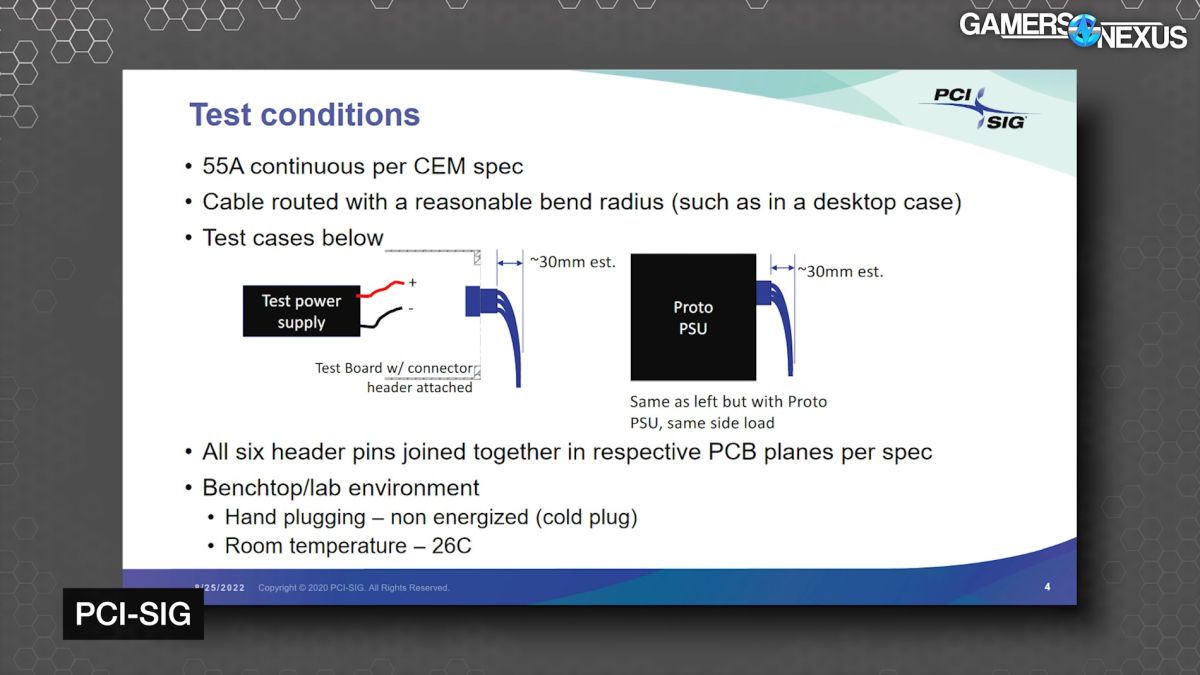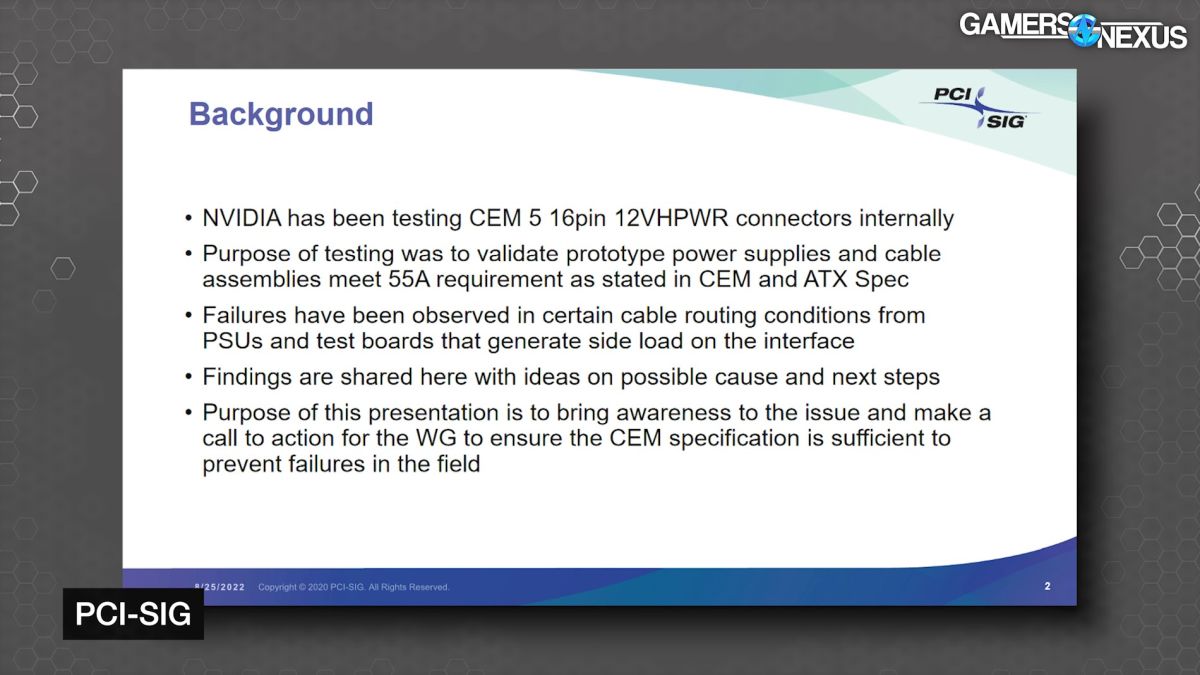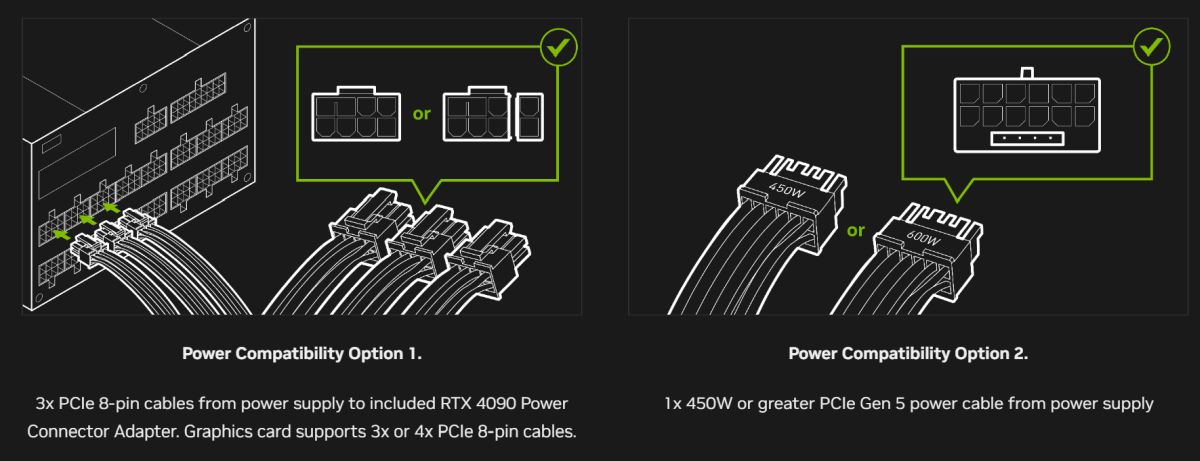The issue was first reported by Steve Burke over at Gamers Nexus (GN), who told his audience that PCI-SIG, the group that governs PCIe standards, had sent out an email regarding the 12-pin (4x 8-pin) PCIe Gen5 cable and that the new power cable standard was shown actually running the risk of actually melting during use. Credit where it’s due, it was NVIDIA who discovered the issue with the PCIe Gen5 cable and reported it to PCI-SIG, as it was running multiple tests with different prototypes of the cable and PSU. PCI-SIG says that one of the causes behind the PCIe Gen5 cable actually melting – besides the fact that running 600W of power through what is effectively a thinner-than-average cable – is wear-and-tear and more to the point, constant plugging and unplugging of it from the card. There is a term for this action: connection cycles. PCI-SIG says that on average, the PCIe Gen5 cables have an average lifespan of 40 connection cycles. As though wanting to rub coarse salt into an already gaping wound, NVIDIA’s AiB partner, Zotac, says that its 12VHPWR cables that will be bundled with each of its RTX 40 Series GPUs will last for 30 connection cycles. There are reports that suggest that 30 and 40 connection cycles is par for the course in the lifecycle of a power connector, PCIe Gen5 standard notwithstanding. And if you’re an average PC gamer who’s only looking to get a card, install it, and forget about it until its first dust-out, that’s fine too. The problem we see here lies with tech media, DIY, and the PC overclocking community; because some of us have no choice but to do the assembly and disassembly dance, this revelation about PCIe Gen5 does somewhat concern us. (Source: GamersNexus, Videocardz)


